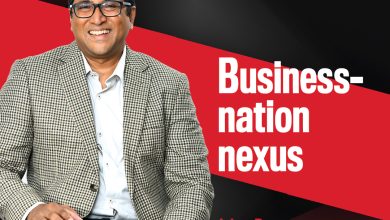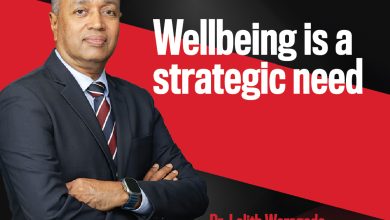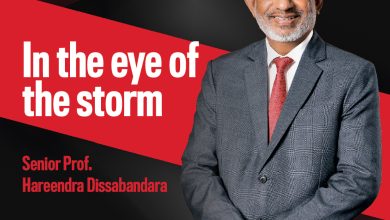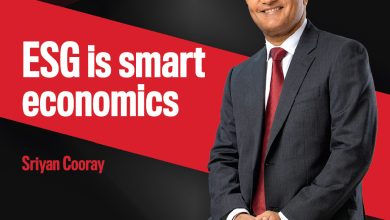EMPLOYEE WELLBEING
Workplace happiness
Rajitha Kariyawasan

Prioritising employee wellbeing is crucial in today’s fast-paced work environment with evolving work-life balance expectations, notes Rajitha Kariyawasan: “As workloads intensify and stress levels rise, a strong emphasis on wellbeing fosters a more engaged and loyal workforce.”
“Creating an organisational culture where employees are happy to come to work as they cooperate to achieve common goals and support each other significantly reduces stress,” he adds.
This focus enhances job satisfaction, reduces turnover and attracts top talent.
GEN Z ADAPTATION “Gen Z employees bring unique perspectives and expectations to the workplace. They’re mindful of sustainability and value organisations that practise the triple bottom line philosophy,” he observes.
Kariyawasan believes that leveraging technology for seamless communication and collaboration – and fostering an inclusive culture through diversity, equity and inclusion – is crucial.
He notes that providing continuous learning and professional development opportunities aligns with Gen Z’s growth oriented mindset. This helps create a supportive environment that caters to the generation’s unique wellbeing needs.
WORK-LIFE BALANCE Kariyawasan emphasises that “fostering a culture that promotes a work-life balance, and supports employees in managing their personal and professional lives effectively, reduces stress, burnout and health-related issues. This leads to happier and healthier staff, who are ultimately more productive and perform better.”
Today’s technology facilitates ease of connectivity and online access for remote operations, offering great flexibility to employees and organisations to promote an effective work environment.
He goes on to say that flexible leave management and working hours, and key performance indicator (KPI) or objective driven performance management systems can play a role too.
Supportive work environments, he maintains, are effective in retaining top talent as employees seek a work culture – one that promotes trust, loyalty and collaboration – in which they can thrive both personally and professionally.
INTEGRATED WELLBEING A priority Kariyawasan highlights is creating a purpose driven organisation along with a culture that fosters togetherness, fair play and job enrichment: “When someone is happy in his or her job and passionate about work, that business has a head start on employee wellbeing as happiness at work is a rare commodity.”
He stresses that this culture must have senior management commitment, creating the foundation for integrating wellbeing into the overall business strategy and setting the tone for the importance placed on employees.
“Formulating policies that support a work-life balance – including mental and physical health, stress management, nutrition, fitness and diversity – will further align employee wellbeing with organisational values and culture,” Kariyawasan asserts.
LEADERSHIP ROLE Managers and leaders are the architects of employee wellbeing, setting a vibrant tone and fostering a supportive culture. He adds that they must lead by example, championing a work-life balance and healthy living.
Kariyawasan continues: “By recognising achievements and providing growth opportunities, they boost morale and motivation. And by being attentive to workloads and responsive to feedback, they create a positive environment where employees thrive.”
KEY PRIORITIES Creating a purpose driven organisation that fosters a triple bottom line culture is challenging yet fulfilling; and it is a top priority.
Simultaneously, Kariyawasan says that recognising and addressing a multigenerational workforce’s diverse needs by offering flexible work arrangements, and tailored wellbeing programmes catering to different age groups and stages of life, is crucial.
Moreover, fostering a culture of inclusivity and belonging remains a priority, particularly as workforce demographics become more diverse. Rapid technological advancements present a dual challenge of improving productivity while potentially causing burnout.
In summing up, he says that “establishing a positive organisational culture – with pleasant working environments, clear and transparent performance driven recognition, digital wellbeing promotion, clear boundaries around the use of technology and managers who are trained to address concerns proactively – is essential for a thriving workforce in light of evolving trends.”





